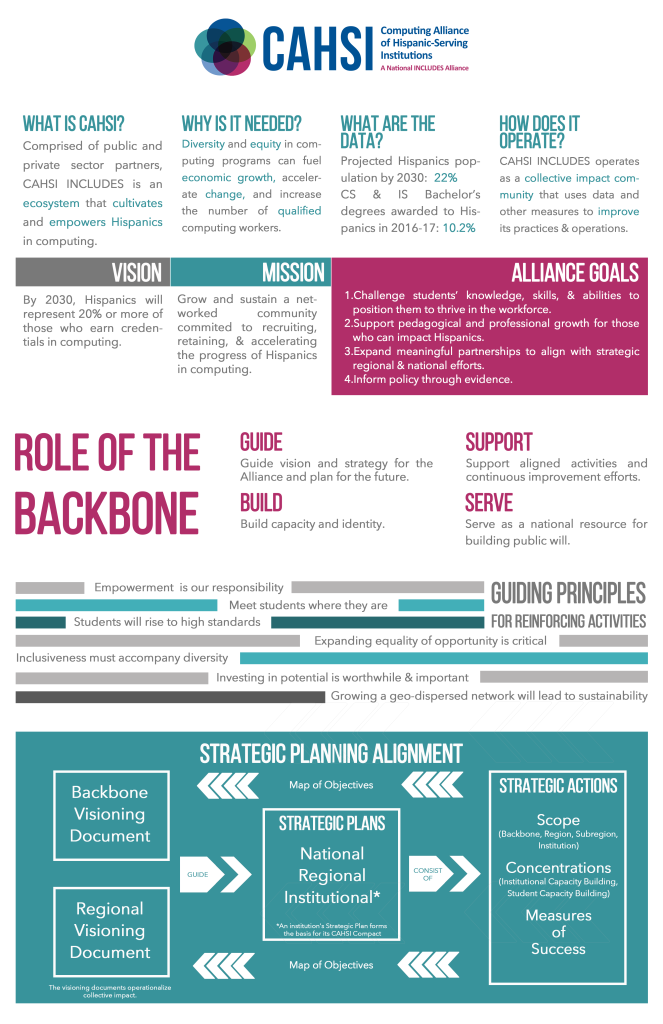CAHSI Overview
With National Science Foundation Broadening Participation in Computing funding, CAHSI was established in 2006 to address the low representation of Hispanics in computing in both higher education and the workforce. In 2018, CAHSI received funding from the NSF, one of only five in the inaugural year to be designated as a National INCLUDES (Inclusion across the Nation of Communities of Learners of Underrepresented Discovers in Engineering and Science) alliance. CAHSI’s strategic actions accelerate inclusive change as well as engage administrators, faculty and professional staff, and entities from the public and private sectors. CAHSI sets forth a flexible process using the conditions of collective impact that furthers the interchange of knowledge creation, adaptation, dissemination, and assessment. CAHSI has a distinguished Board of Advisors (BOA) who evaluate CAHSI’s progress and make recommendations regarding its strategic direction.
Because of its evidence-based impact, CAHSI has been nationally recognized in 2015 by the White House Initiative on Educational Excellence for Hispanics as a Bright Spot in Hispanic Education and by Excelencia in Education through its Growing What Works database.
How CAHSI Operates
CAHSI’s strategic actions to accelerate change are driven by a collective impact approach that engages administrators, faculty, and professional staff and entities from the public and private sectors. CAHSI’s efforts center on:
- Research focus on organizational behavior in HSIs that advance Hispanic computing success
- Effective academic support structures that engage Hispanic students, including pedagogical approaches, curricula, and co-curricular activities
- Effective, culturally-relevant strategies to address financial challenges and social support of Hispanic students
- Capacity building informed by data collection, analysis, and interpretation for quality improvement
- Organization of networks and collaborations that accelerate advances toward a diverse, innovative, and well-prepared computing workforces



